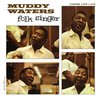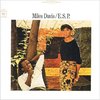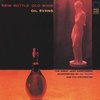AAA 100% Analogue This LP was Remastered using Pure Analogue Components Only from the Master Tapes through to the Cutting Head
Pure Pleasure / Liberty - PPAN LST-35002 - 180 Gram Virgin Vinyl -
AAA 100% Analogue - Mastering by Sean Magee at Abbey Road London
Limited Edition - Pressed at Pallas Germany - Liberty LST-35002
Featured in Michael Fremer's Heavy Rotation in the April 2010 Issue of Stereophile! Highly recommended. Music 9/10 Sound 8/10
When this two-LP set was initially released in January 1971, Canned Heat was back to its R&B roots. Sporting a slightly revised personnel with the return of Henry 'Sunflower' Vestine and the incorporation of Antonio 'Tony' de la Barreda on bass, a highly skilled constituent of Aldolfo de la Parra on drums. Sadly, it would also be the final effort to include co-founder Alan 'Blind Owl' Wilson, who passed away in September 1970. "Hooker 'n Heat" (1971) is a low-key affair split between unaccompanied solo John Lee Hooker tunes, collaborations between Hooker and Wilson, as well as five full-blown confabs between Hooker and Heat.
The full-fledged collaborations shine as both parties unleash some of their finest respective work. While Canned Heat get top bill — probably as it was the group's record company that sprung for "Hooker 'n Heat" — make no mistake, as Hooker steers the combo with the same gritty and percussive guitar leads that have become his trademark. The epic "Boogie Chillen No. 2" stretches over 11-and-a-half minutes and is full of the same swagger as the original, with the support of Canned Heat igniting the verses and simmering on the subsequent instrumental breaks with all killer and no filler.
Canned Heat are hands down the best back-up band John Lee Hooker has recorded. And despite the cover billing, they are very much a back-up group, for this is really a John Lee Hooker album, and one of his best in a long while.
Much of the credit goes to the Heat's planning and programming. They have caught Hooker in a variety of settings: soloist in his own characteristic idiom; playing a fantastic series of duets with the late Al Wilson; and fronting the entire band (minus Hite, who worked on the project, and spread his infectious good humor, from the control booth) for some righteous, raunchy boogie. Canned Heat have made no secret of the fact that their entire boogie series, spread over some three albums, draws its inspiration from Hooker's work, so the combination is a natural. The second album in this two-record set is given over to band numbers, and it's the best of the two.
Mention should be made of the earth-moving power of Antonio de la Barreda and Adolfo de la Parra, the Heat's south-of-the-border rhythm section, and of the engineering, which may still be a little too clean for Hooker, but then, nobody records in barns anymore. Hooker fans are going to dig this record, and so are Heat fans, and that includes a lot of people. Let 'em boogie!
The iconic Canned Heat are an American blues and rock music treasure. Their importance and ever growing legion of worldwide fans is second to none. Their music has been an inspiration to many as their definitive catalog of albums and hit singles have stood the test of time.
Formed by fellow blues enthusiasts and record collectors Bob “The Bear” Hite Jr. and Alan “Blind Owl” Wilson, they were one of the first rock bands to successfully translate the country blues of icons like Robert Johnson, Elmore James, John Lee Hooker and others to a whole new audience. While maintaining a rock, country blues and boogie groove, Canned Heat’s sound became their trademark to the world.
Soon recruiting members like Larry Taylor on the bass, Henry Vestine on guitar and Fito de la Parra on drums, Canned Heat became the toast of the hippie generation in the sixties culminating with their headline appearance at the Woodstock festival in August 1969. Their music not only rocked, but it also foretold future concerns about the environment, the human condition, the economy, and the somber effects of wars.
For several years, Canned Heat along and their fellow bluesman John Lee Hooker had been playing shows together but never recorded an album with each other, that was until the folks at Liberty Records awarded their favorite boogie band the opportunity to cut a double album extravaganza with The Hook, aptly titled Hooker ‘N Heat.
The session first two sides featured John Lee Hooker shouting the blues and tapping his feet, while cleverly placing microphones all over to the studio to catch every nuance and beat of this sorely missed blues master. Listen to the man do his thing on Messin' With The Hook, You Talk Too Much and Meet Me In The Bottom. In addition to Hooker, the late great Alan Wilson would also be featured on harp and piano for several of these amazingly raw solo tracks. As fate would have it, his gentle spirit soon departed Earth, making these The Blind Owl’s final commercial recordings.
The remaining sides feature the full Canned Heat band and John Lee Hooker laying down some of the finest rock and blues boogie ever recorded. With the combination of Bob Hite manning the mixing board with Skip Taylor, Henry Vestine’s atomic lead guitar, Fito de la Parra’s powerful boogie beat, the dynamic Alan Wilson on guitar and harmonica, Tony de la Barreda’s bass and John Lee Hooker’s tenacious vocal and guitar, there never was or will be a more incredible display of the boogie ever caught on wax. Just check out the groove of Let’s Make It, the jump blues of the hit single Whiskey and Wimmen’ or the battle royal boogie of Boogie Chillen No. 2.
The first two sides of this double record set spotlight Hooker, his incendiary, coiled-snake stinging guitar, his foot stomping, mutable time-keeping and his chant-like, mournful singing all recorded intimately. Canned Heat co-founder Al Wilson contributes harmonica and piano on some of the tunes that are otherwise all Hooker.
The first two sides of this double record set spotlight Hooker, his incendiary, coiled-snake stinging guitar, his foot stomping, mutable time-keeping and his chant-like, mournful singing all recorded intimately. Canned Heat co-founder Al Wilson contributes harmonica and piano on some of the tunes that are otherwise all Hooker.
On most songs the engineer puts Hooker in one channel, his guitar in the other and his foot in the center and you won’t know which to fixate upon and that includes the foot. When Wilson joins in, he’s center stage too, the harmonica bathed in reverb and therefore inhabiting a wet space somewhere other than from where Hooker plays.
Having Hooker playing and singing live and putting his guitar in effect ten feet from his voice produces an unrealistic but entertaining and useful perspective. You can zone out the voice and listen to Hooker’s adrenaline-charged guitar, appreciating the complexity he wrings from seemingly simple and familiar riffs, most of which he invented and everyone else copied.
A fierce, agitated intensity and an almost religious fervor you just don’t seem to hear anymore jump from Hooker as he chugs his way through these basic tunes. Van Morrison resonates with a similar jumpy edge. No wonder he grew up a big fan. Hooker’s song “You Talk Too Much” doesn’t go much beyond the four words except at the end where he closes it out with “Shut up.”
A few more collaborations with Wilson begin side three and then finally Canned Heat comes in for the final five tunes, ending with signature “Boogie Chillen NO. 2.”
Hooker improvises a song describing the state of the world 1970. About the young people, change, race relations, the war in Vietnam and the need for the old generation to pass away in order for there to be an end to the conflicts unsettling the world. It didn’t exactly turn out that way but the sentiment was sweet.
The hotel room cover captures the intimacy of the sonics. The recording sounds as if it was recorded in a small room like that but the inside shows you the studio recording session.
The between song patter with the recording booth serves to document the recording process: Hooker was hired for a performance that would be recorded. He was on the clock or so it sounded. Wilson and the band would be added to some tunes, but in no way was this a cooperative, collaborative effort. It was Canned Heat going for a thrill ride.
It’s pure music making of the simplest yet most complex kind, simply and purely recorded. I have to admit I was either too stupid or too frozen to appreciate this when this was first issued in 1970. I’d heard all of this kind of thing before, I thought, as a kid and so dismissed it looking for new thrills. But clearly I wasn’t listening. Al Wilson died shortly after this was recorded. Hooker lived long enough to see his career resurrected yet again as he hit old age. He kept boogie-ing until the end, attracting yet another generation of kids to his particularly visceral place in the sun. Highly recommended. - Music 9/10 Sound 8/10 Michael Fremmer Stereophile
Selections:
1. Messin' With the Hook
2. The Feelin' Is Gone
3. Send Me Your Pillow
4. Sittin' Here Thinkin'
5. Meet Me in the Bottom
6. Alimonia Blues
7. Drifter
8. You Talk Too Much
9. Burnining Hell
10. Bottle Up and Go
11. The World Today
12. I Got My Eyes On You
13. Whiskey and Wimmen'
14. Just You and Me
15. Let's Make It
16. Peavine
17. Boogie Chillen No. 2
1970 Liberty Studios, Los Angeles, Dino Lappas Production: Skip Taylor & Robert Hite Jr.


Pure Pleasure Records
The Restoration of the Art of Sound
180g Vinyl Mastered From The Best Available Sources
At the beginning of the 90s, in the early days of audiophile vinyl re-releases, the situation was fairly straightforward. Companies such as DCC, Mobile Fidelity, Classic Records and, of course, Pure Pleasure all maintained a mutual, unwritten ethical code: we would only use analogue tapes to manufacture records. During the course of the present vinyl hype, many others have jumped on the bandwagon in the hope of securing a corner of the market. Very often they are not so ethical and use every imaginable source to master from: CDs, LPs, digital files, MP3s – or employed existent tools from the 80s and 90s for manufacturing.
A digital delay is gladly used when cutting a lacquer disc because tape machines with an analogue delay have become quite rare and are therefore expensive. When cutting the lacquer, the audio signal is delayed by one LP revolution against the signal, which controls the cutter head, and for this a digital delay is very often employed. Of course, the resultant sound signal is completely digital and thus only as good as this delay.
We should like to emphasize that Pure Pleasure Records on principle only uses the original master tape as the basis for the entirely analogue cutting of lacquer discs. In addition, the pressing tool is newly manufactured as a matter of principle. We only employ existing tools for manufacturing if an improved result is not forthcoming, e.g. the title Elvis Is Back, which was mastered by Steve Hoffman and Kevin Gray, or several titles from our Philips Classics series, which in any case Willem Makkee cut from the original masters at the Emil Berliner Studios in the 90s. It goes without saying that we only used the mother and that new tools were made for our production. To put it in a nutshell: we can ensure you that our releases are free from any kind of digital effects and that the lacquer discs are newly cut.
There really is nothing quite like it. It’s the touch, the feel, you have to stop and stare, the cover, the real thing, even the smell.
Its tangible, you can feel it, see it, study it, muse/dream over it, it’s real, someone has spent hours and hours over its construction and presentation. Pure Pleasure Records is just that, Pure Pleasure and that is what it has set out to be.
The music and the physical record. Something to keep, treasure, admire and above all enjoy.Of course with vinyl it’s not just a record, it’s the cover, the sleeve notes, you are holding a unique package, produced by craftsmen.
Pure Pleasure Records bring you vinyl albums of quality Jazz - Blues - R+B - Soul - Funk, remastered by some of the best engineers in the world and pressed on 180 gram audiophile vinyl at what is probably the best pressing plant in Europe
Pure Analogue Audiophile Mastering
Plated and Pressed at Pallas in Germany on 180 Gram Virgin Vnyl
Released in Limited Quantities
PALLAS
Audiophile Vinyl - Made in Germany For over 60 years the family business in the third generation of the special personal service and quality "Made by Pallas" is known worldwide. Our custom PVC formulation produces consistently high pressing quality with the lowest surface noise in the industry. Our PVC complies with 2015 European environmental standards and does not contain toxic materials such as Lead, Cadmium or Toluene. Our vinyl is both audiophile and eco-grade!














